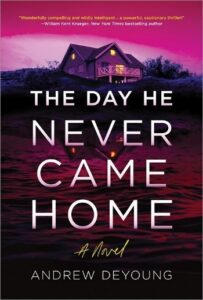Who the F did I marry? It’s been the question on everyone’s mind as an epic TikTok series from user Reesa Teesa has gone massively viral. In the hours-long series of videos, she tells her dizzying true story about falling for a seemingly wonderful man who later proved to be a pathological liar and, in Reesa Tessa’s words, “the United Nations of red flags.” She cleverly names her ex-husband “Legion,” hinting at the army of false selves and stories that live inside him. Legion lies about everything from his family to his finances and his job—at one point even giving his wife a completely fake Social Security number.
With so many other viewers, I’ve been following the story with fascination—in part because my newest book, a thriller titled The Day He Never Came Home and coming in July, is a “who the F did I marry?” story in its own right. In the book, my main character, Regan, discovers that her husband and the father of their two children is not who he claims to be after the FBI shows up on her doorstep with a warrant for his arrest. The rabbit hole of his lies goes even deeper than Legion’s, growing to include a handful of false identities, financial fraud, money laundering, and murder.
But why is the “Who the F Did I Marry?” story so appealing—enough to keep social media users watching through 50+ videos, hours of online content? In part, Reesa Tessa’s cautionary tale offers the same voyeuristic thrill of a good true crime doc: the dizzying twists and the turns, paired with the comfort of knowing that it’s not happening to you. There’s also the appeal of Reesa Teesa as a real-life protagonist, someone you root for to get away from a terrible man and get on with her life.
Ultimately, though, I think the story appeals because, wild and extreme though it is, there’s actually something universal about it. Something recognizable in the experience of falling in love with someone, only to wonder: Wait, do I actually know you? The real you? Who are you, really? When we date someone, after all, we tend to present a version of ourselves that we hope the other person will like—while they, on their side, do the same to us. Is this lying? In extreme cases like Legion’s, yes; but for others, this can be more like trying on a version of ourselves to see how it fits. And if the relationship makes it all the way to marriage, there are always some surprises as the mask comes off and you meet your chosen partner’s true self. After twenty years together, my wife still has the capacity to surprise me—in a good way, thankfully! But all the same, I’ve had occasion to look at her with wonder and say, Who the F did I marry? (And I’m sure she has, as well.)
This experience is so universal, in fact, that the “who the F did I marry?” story is practically a sub-genre in literature. Stories of realizing a spouse isn’t exactly who you thought they were show up in Shakespeare and Tolstoy, they’re a major part of classic novels like George Eliot’s Middlemarch or Daphne DuMaurier’s Rebecca—and they’ve become a regular feature of modern-day domestic thrillers too.
Here are a few more fantastic “Who the F did I marry?” books for you to enjoy, if you, like me, can’t look away from the slow-moving trainwreck of someone finding out the complicated, occasionally ugly truth about the person they married.

The Wife Before, by Shanora Williams
“He is not the man I assumed he was…”
A prolific writer of both thrillers and romance, Shanora Williams delivers the perfect “Who the F did I marry?” book in The Wife Before. She captures not just the fear of realizing your spouse might not be who you thought they were, but also the fairy tale romance that might lead a person to marry someone they don’t know very well in the first place. Here, it’s Samira falling quickly for Roland, a professional golfer who seems like the perfect man to help her get some direction in her life. But when she moves into his secluded home and discovers diary entries written by Roland’s previous wife, Samira realizes her husband might not be who she believes him to be—and that she might be in danger.

The Love of My Life, by Rosie Walsh
Rosie Walsh’s The Love of My Life gives us a wife, Emma, as a mystery to be solved by her husband, Leo. A professional obituary writer, Leo must take on the task of pre-writing his beloved wife’s obituary when she is diagnosed with cancer. But in researching her life in preparation to write a fitting tribute, Leo encounters mysteries, inconsistencies, and outright lies that Emma (if that’s even her real name) can’t clear up. As the book continues, the title takes on layers of meaning: Emma might be the love of Leo’s life, but is he Emma’s? Is it really possible to love someone you don’t truly know, who can’t be fully honest with you?
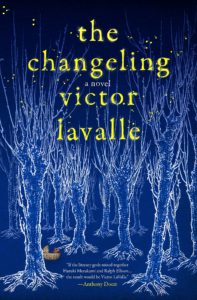
The Changeling, by Victor Lavalle
More horror than thriller (but plenty of mystery either way), The Changeling mixes supernatural elements into the marriage story of Apollo and Emma. Here it’s the wife who undergoes a seeming change in personality, as Emma acts begins acting strangely following the birth of their son. At first she seems to be plagued by postpartum depression and the stress of early parenthood—but eventually Apollo realizes that his wife’s problems are much deeper. Following a shocking act, Emma disappears, and Apollo must embark upon a strange quest understand the wife he never truly knew. Recently adapted into a haunting television series starring Lakeith Stanfeild, this is a book best picked up knowing as little as possible.
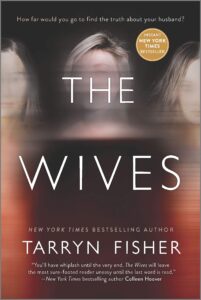
The Wives, by Tarryn Fisher
This thriller about a woman who shares her husband with two other wives provides one dizzying “who did I marry?” twist after another. There’s the up-front revelation of one man with multiple spouses, to begin with—an arrangement the main character, Thursday, knows about even if Hannah, another of the wives, doesn’t. Even after that’s been dealt with, there’s the matter of Hannah’s mysterious injuries, which have Thursday wondering if she knows even less about her husband (their husband) than she initially thought. Fisher piles one revelation on top of another, providing the dizzying rush of unraveling a tangle of relationships built on lies.
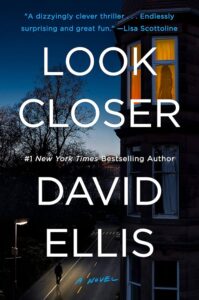
Look Closer, by David Ellis
In David Ellis’s Look Closer, it’s not just one spouse whose identity and motivations are a mystery—at points throughout the book, readers will have WTF moments with both Simon and Vicky. Simon appears to be cheating on Vicky, while Vicky seems to be a serial con artist of some sort. Meanwhile there’s that dead body in a wealthy Chicago suburb to deal with, a brutal murder in which both are vaguely implicated, even if the police can’t make the evidence fit into any clear picture. Is Vicky setting Simon up? Or is Simon the one pulling the strings, and Vicky’s the mark? The title serves as a sort of hint: look closer. Nothing is as it seems in this intricately plotted thriller of money, murder, and marriage.
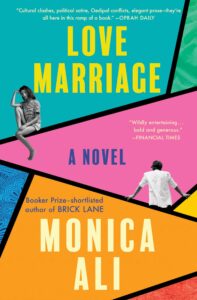
The Love Marriage, by Monica Ali
“Who did I marry?” becomes “who am I about to marry?” in this brilliant social novel by Monica Ali, which takes an engagement between two young doctors as the starting point for a meditation on family, race, class, and the secrets we keep from each other. When Yasmin and upper-class Joe get engaged, the collision of their vastly different families leads to a crisis of identity that causes Yasmin to question long-held beliefs about her family and her parents in particular. Not to mention the secrets Joe tells his therapist—secrets that would threaten to upend his and Yasmin’s pending union if they come out.
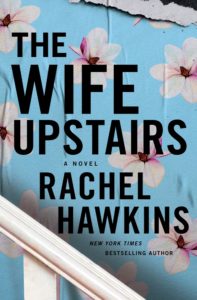
The Wife Upstairs, by Rachel Hawkins, and Jane Eyre, by Charlotte Bronte
A double-barreled recommendation, since this novel by Rachel Hawkins is based on Charlotte Bronte’s Jane Eyre, one of the original “who the F did I marry?” books. In the original classic, there’s two characters who come to regret their romantic choices—Rochester, who eventually laments his first marriage, and then Jane herself who, in falling for Rochester, must come to wonder with horror: what kind of monster imprisons his wife in the attic?
In the modern reinterpretation, Jane is a broke dog-walker with a secret past, and Eddie Rochester is a rich man with a past wife supposedly lost to a mysterious accident. But what really happened? And what is Jane herself hiding? If you’ve read Jane Eyre you really owe it to yourself to read Hawkins’s homage—and if you haven’t yet read Bronte’s classic, well, what are you waiting for?
***


